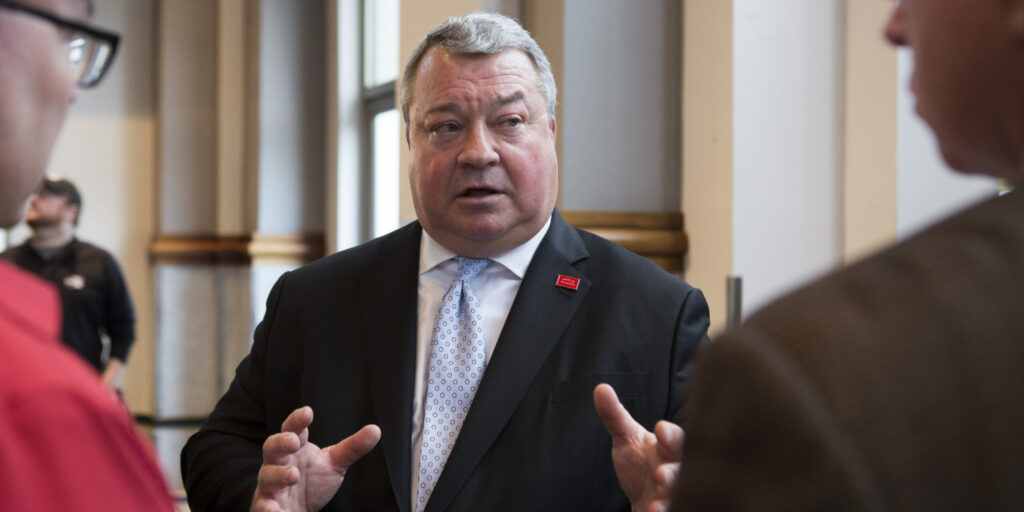A detailed breakdown of Governor Kay Ivey’s proposed budgets was provided by Alabama Department of Finance Director Kelly Butler on Wednesday, including the costs of Ivey’s proposed teacher and state worker pay raises.
In large part thanks to responsible budgeting by the legislature over the last decade and increased revenues from the online sales tax, slight increases in state funding is the overall theme of the proposed Fiscal Year 2022 budgets.
Butler provided details on each of the major proposals the Ivey administration included in the two documents.
The full breakdown of the Education Trust Fund budget can be found here, while the General Fund budget can be accessed here.
Education Trust Fund
Butler said Wednesday that Ivey’s proposed Education Trust Fund budget is about $440 million more than the previous year’s.
Possibly the highest-profile piece of the governor’s education budget is a 2% pay raise for all state education employees, which is estimated to cost $88 million.
An oft-discussed topic in recent years, funding for rural broadband initiatives was flat year over year in Ivey’s proposed 2022 budgets.
During the pandemic, Alabama has seen a large number of students leave their public school system. Education officials are projecting those numbers to largely rebound in the coming year.
Worrying for many local education officials is the reality a large portion of education funding in Alabama is doled out on a per-student basis through established formulas. Many districts are looking at significant declines in revenue. To mitigate the matter, Ivey is proposing a one-time apportionment of $95 million to help tide over districts during the temporary reduction in students.
In recent years, Alabama has provided all K-12 teachers with a $600 stipend to pay for school supplies. Ivey’s budget has funding allocated to increase that to $1,000 per teacher, at the cost of $18.5 million to the state.
Governor Ivey’s budget has a set of increases for students with special needs at the K-12 level, career tech classes and summer literacy programs.
Long a shining star among Alabama’s education offerings, the state’s First Class Pre-K program would get a $27 million increase under Ivey’s budgets. That is estimated to provide for about 207 new pre-k classrooms or 3,726 students.
Butler said Wednesday that Ivey’s budget has a 6%-7% funding increase for all two and four-year colleges and universities in the state.
General Fund
Similar to the Education budget, Ivey is proposing a 2% pay raise for all state employees, which is estimated to cost the state $13.6 million.
A pandemic-induced change in how the federal government pays for Medicaid means the state has $51 million less it owes for the program than in the previous year.
Ivey is proposing to increase funding to the Alabama Department of Corrections (ADOC) by $27.2 million dollars. “The great bulk of that money would go to increases in the health care contract, both basic health care and mental health services,” explained Butler.
Alabama’s prisons are currently the subject of a federal lawsuit alleging the conditions inside violate the U.S. Consitution’s protections against cruel and unusual punishments. Butler said the increases in funding were needed as part of dealing with the lawsuit.
Governor Ivey has also put forward a $37.8 million conditional appropriation to ADOC “based on their ability to hire additional correctional officers,” in Butler’s words.
Butler added, “If corrections is able to hire more officers, funding will be available for that.”
As mentioned in the State of the State address, Ivey is calling for the construction of a fourth mental health crisis center.
Butler elaborated that this center would be placed somewhere in the Birmingham-Tuscaloosa area, which did not receive one of the initial three centers announced in 2020. The cost to the state for the new center is estimated to be around $6 million.
Like Medicaid, the Children’s Health Insurance Program (CHIP) received increased federal funding amid the pandemic, so it can absorb a reduction in 2022 state expenditures on its behalf.
Ivey is proposing several one-time investments in the 2022 budgets for items such as upgrades to the state’s cybersecurity infrastructure, a new case management system for the state supreme court, and a new driver’s license management system at ALEA.
The proposed general fund budget for Fiscal Year 2022 has a large increase in funds for the Bureau of Pardons and Paroles.
Butler explained that this was necessary because, in Fiscal Year 2021, the Bureau in large part subsisted on funds carried over from past years that will no longer be available in 2022.
The next step for Ivey’s proposed budgets is to go in front of the state legislature, which has the ultimate spending power at the state government level.
Henry Thornton is a staff writer for Yellowhammer News. You can contact him by email: henry@new-yhn.local or on Twitter @HenryThornton95.













